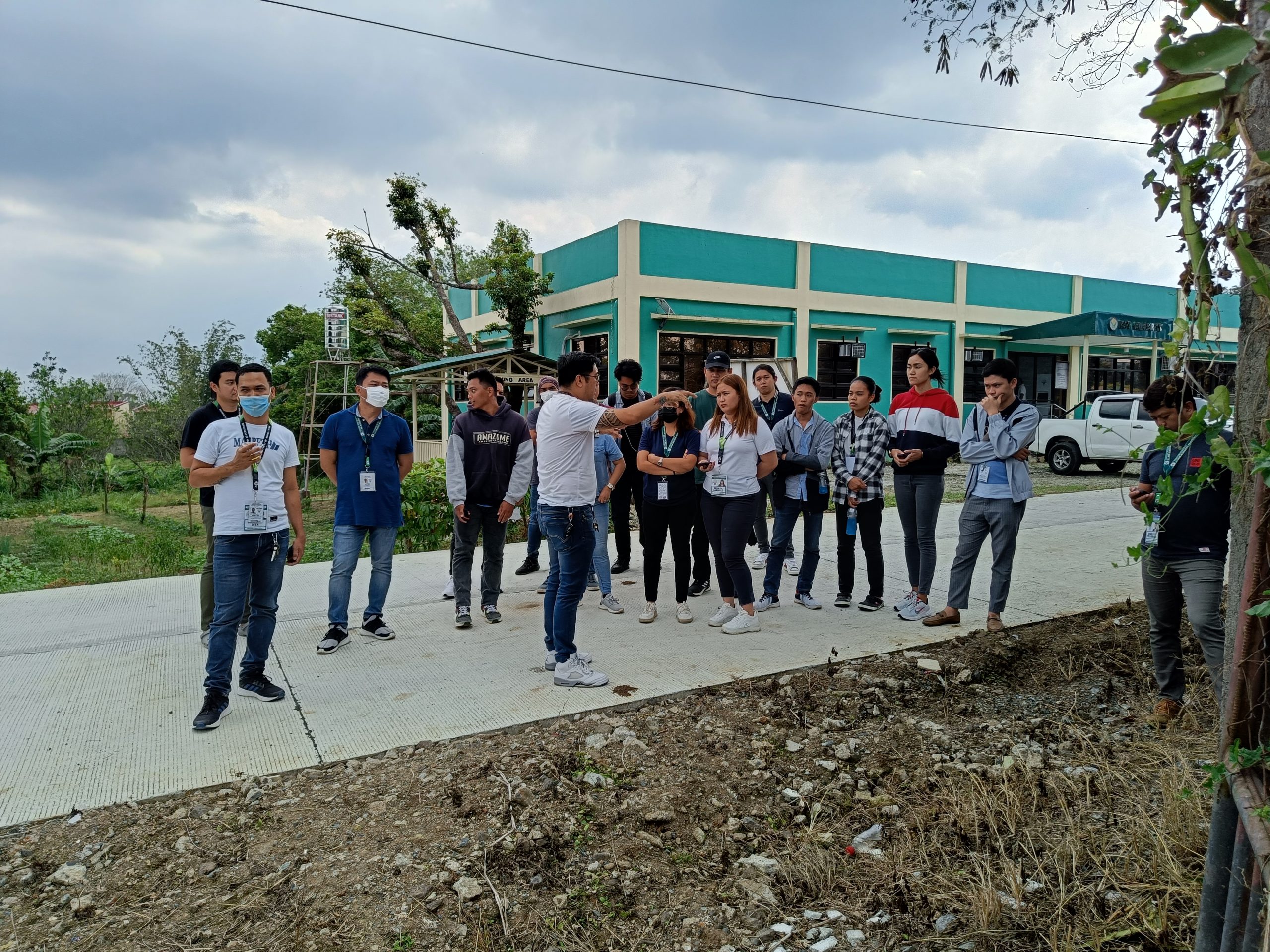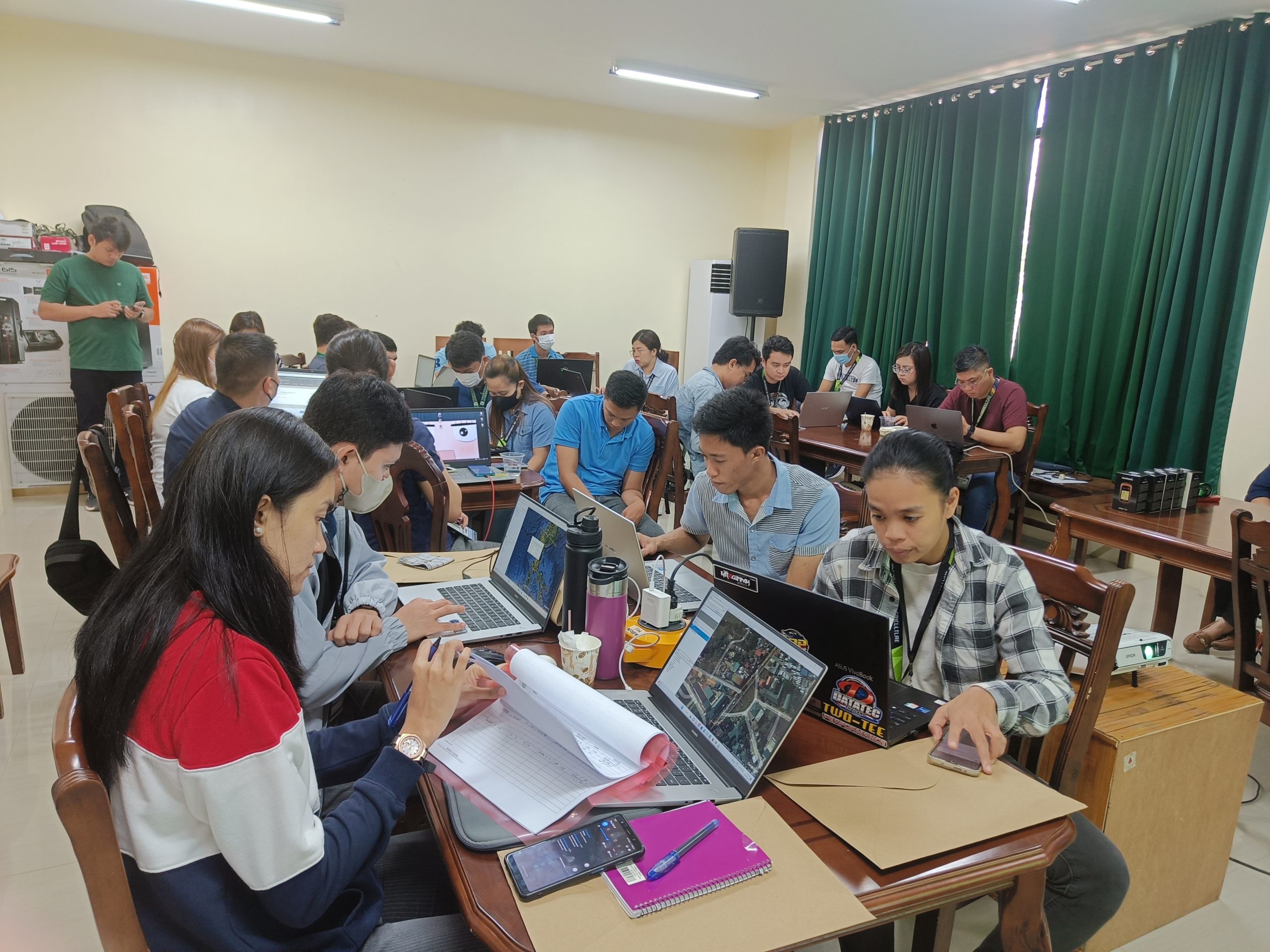CALABARZON, April 17, 2023 – In an effort to promote effective monitoring, the Department of Agriculture – Special Area for Agricultural Development (DA-SAAD) Program Phase 2 in CALABARZON conducted a hands-on training on applied geotagging on February 23, 2023, at Marauoy, Lipa City. This sought to train and acquaint the regional implementers in field monitoring with the use of geotagging technology as a tool for project monitoring and evaluation.
With the help of Mr. John Carlo P. Narvacan, Regional Lead Officer, 14 field implementers from the Regional Program Management Support Office (RPMSO), 4 from the Provincial Program Management Support Offices (PPMSOs) of Quezon and Batangas, 7 representatives from Research and Development Division (RND), and 4 representatives from the Management and Information Section (MIS), were capacitated with the basic concept of geotagging.
Geotagging and its importance to the SAAD program
Geotagging is a process of generating geographical information, usually for rural and community development initiatives. For the agri-sector, it is a technological tool used to track agricultural locations for monitoring and validation of projects.
For SAAD’s implementation, geotagging is commonly utilized for the visualization of information on farmer-beneficiaries and their projects through digitized maps. These maps mark the farm production sites and market roads. The initiative will help the program in monitoring, evaluating, and creating solutions to farmers’ concerns, especially on agricultural product transportation to potential markets.
Since SAAD only launched in CALABARZON for Phase 2, field implementers underwent training on first-hand application and data processing. Mr. Narvacan shared that geotagging practices demand to be taken carefully in order to avoid inaccurate data. This aspect where inaccurate data is being applied will later affect data analysis and solution creation or policy recommendations. Thus, Mr. Narvacan expressed that data cross-checking and consistency must be observed by the field implementers.
“Bagama’t mukhang simple ang georeferencing, hindi ito dapat ipagsawalang-bahala. Kailangan itong gawin nang maayos at maingat upang maiwasan ang pagkakamali sa pagkuha ng mga data. Napakahalaga ng mga ganitong workshop hindi lamang sa kasalukuyang proyekto kundi pati na rin sa mga susunod nating mga gawain,” he noted.
(Geo-referencing may appear simple, but it must be done carefully to avoid incorrect data, thus this type of workshop is fundamental not only to the projects but in attaining the goals of the program.)
Ms. Aida P. Luistro, Supervising Science Research Specialist of the RND encouraged the participants to pour their commitment into implementing the SAAD Program.
“Mahalagang maunawaan natin bilang mga implementers, kung paano gumagana ang ganitong uri ng teknolohiya, at kung ano ang layunin nito, at kung paano ito makakatulong sa atin na matugunan ang mga pangangailangan ng ating mga benepisyaryo, ang poorest of the poor,” stressed Ms. Luistro.
(As implementers, it is important to understand how this type of technology works and its purpose, as well as how it will aid in the needs of our beneficiaries, the poorest of the poor.)
Through the training, the participants also gained familiarization with the technical terms and tools of geotagging using smart phones and handheld GPS devices. By explaining the technical terms, the field implementers gained a basic understanding of using the geotagging application.
Geotagging will be part of the regular activities for the social preparation component, under the profiling sub-component. Qualified farmers are targeted to receive SAAD’s livelihood assistance in 2024.
As a way forward, SAAD CALABARZON is preparing for the conduct of geo-referencing in the municipalities of Alabat and Perez, Quezon and Tingloy, Batangas ###
Writers: Nicole C. Zarsuelo, DA-SAAD CALABARZON Information Officer, Juliuc C. Honrado, DA-SAAD CALABARZON Information Officer, Pamela Faith M. Garcia, DA-SAAD CALABARZON Information Officer



Comments (0)